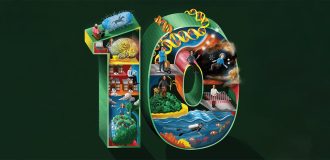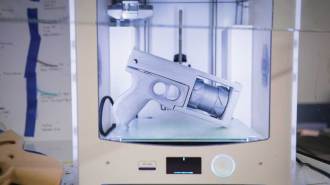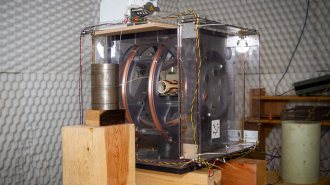Tech
Sign up for our newsletter
We summarize the week's scientific breakthroughs every Thursday.
-
 Science & Society
Science & SocietyBias in a common health care algorithm disproportionately hurts black patients
A machine-learning program that uses past medical costs to identify patients for extra care favors white patients over black patients, a study finds.
By Sujata Gupta -
 Quantum Physics
Quantum PhysicsGoogle officially lays claim to quantum supremacy
The quantum computer Sycamore reportedly performed a calculation that even the most powerful supercomputers available can’t reproduce.
-
 Science & Society
Science & SocietyThis year’s SN 10 enjoy the journey, not just the discovery
Meet 10 young researchers who combine persistence and passion to make headway on science’s big questions.
-
 Neuroscience
NeuroscienceMaryam Shanechi designs machines to read minds
Maryam Shanechi creates computer programs that link brain and machine to one day help patients with paralysis or psychiatric disorders.
-
 Genetics
GeneticsStanley Qi gives CRISPR a makeover to redefine genetic engineering
By adapting CRISPR/Cas9, Stanley Qi has given genetic engineers a plethora of new tools.
-
 Science & Society
Science & SocietyParag Pathak uses data and algorithms to make public education fairer
Economist Parag Pathak has overhauled school choice systems across the United States. Now he’s assessing what makes for a good education.
By Sujata Gupta -
 Science & Society
Science & Society3-D printed ‘ghost guns’ pose new challenges for crime-scene investigators
Researchers are analyzing the ballistics of 3-D printed guns and the plastic they leave behind to help forensic scientists track these DIY weapons.
-
 Tech
TechThis device harnesses the cold night sky to generate electricity in the dark
A new thermoelectric generator uses the temperature difference between Earth and outer space to create electricity after the sun goes down.
-
 Tech
TechA new prosthetic leg that senses touch reduces phantom pain
A prosthetic leg that can sense foot pressure and knee angle helped two men walk faster and reduced phantom leg pain.
-
 Humans
HumansSupercooling tripled the shelf life of donor livers
Cooling organs to subzero temperatures could help them last longer, making lifesaving transplants available to more people.
-
 Tech
TechA mini chemical lab could one day test for toxic nerve agents in the field
Portable lab equipment that detects nerve agents could help judge when it’s safe to return to previously exposed areas.
-
 Life
Life50 years ago, scientists thought they knew why geckos had sticky feet
50 years ago, scientists thought gecko feet had suction cups that allowed the animals to stick to surfaces. Today we know tiny hairs do the job.
By Kyle Plantz